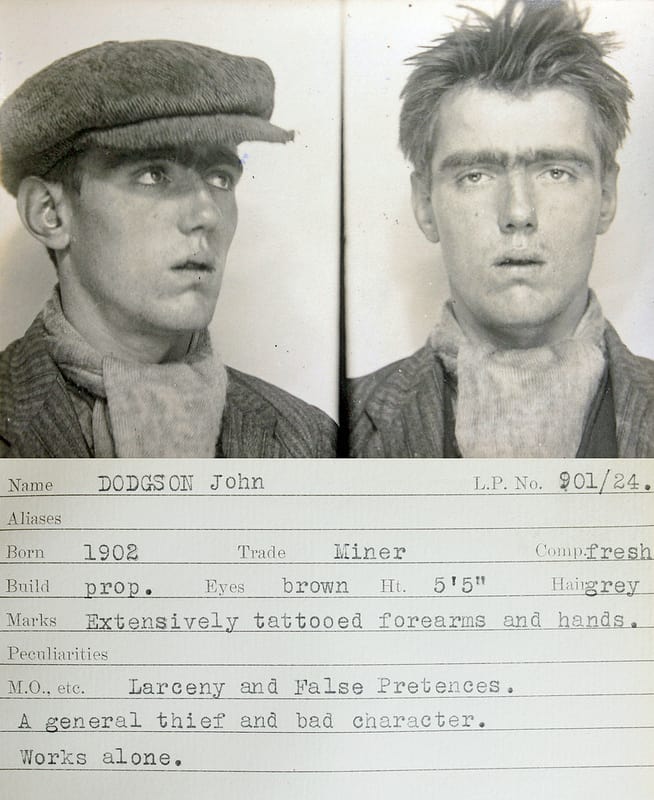 I’m a big fan of using mock trials – they embody critical thinking in the classroom. Over the years I wrote a number of cases which proved to be effective tools for improving student analytic skills and Common Core skills. Here’s two posts from my blog on using them in the classroom. And here’s a link to two mock trials and an appeals case that I developed.
I’m a big fan of using mock trials – they embody critical thinking in the classroom. Over the years I wrote a number of cases which proved to be effective tools for improving student analytic skills and Common Core skills. Here’s two posts from my blog on using them in the classroom. And here’s a link to two mock trials and an appeals case that I developed.
This week we will be visited by Ms. Barbara Rost, program director, Classroom Law Project. She will guide us through a mock trial – The People Vs Carter (2.4mb PDF) – and provide resources for law related education. (Be sure to follow that link – loads of lesson plans!)
Barbara graduated with a Bachelor of Science from Portland State University after using the 11-year plan to earn her degree, something she does not advocate for others. Three years later she earned her J.D. from Lewis & Clark Law School. She enjoys combining her interests in law and education in her work at Classroom Law Project. She is married, has two daughters in college and a really cute dog.
Classroom Law Project is a non-profit organization dedicated to bringing civics, government and law to Oregon classrooms K-12. Teachers and students know CLP through programs such as mock trial, con team, Law Day conference (for students), Civics Conference for Teachers, court tours, weekly current events, professional development and more. CLP makes civic education fun. Its mission statement: Classroom Law Project is a non-profit organization of individuals, educators, lawyers, and civic leaders building strong communities by teaching students to become active citizens.
Image credit: John Dodgson / Mug Shot / 1930s
This mug shot comes from a police identification book believed to be from the 1930s. It was originally found in a junk shop by a member of the public and subsequently donated to Tyne & Wear Archives & Museums. No information is available to confirm which police force compiled it but evidence suggests it’s from the Newcastle upon Tyne area.
This image is part of the Tyne & Wear Archives & Museum’s set “Newcastle upon Tyne criminals of the 1930’s.” Accession no. DX1190

Reblogged this on ohyesjulesdid and commented:
A way to connect skills to the real world.
I really enjoyed this class. I have never done mock trials before, so this was a new experience for me. Right away I can see the value of it for my students. However, this lesson also taught me how much scaffolding and preparation is required of mock trials. I definitely want to incorporate this kind of learning into my classroom, I will just have to be prepared with the pre-activities and such. Having Barbara talk about the Classroom Law Project showed us that there are plenty of resources for us out there if we just look. When the time comes to use a mock trial, I know where my first internet stop will be!
Mock Trials were something that I have heard talked about a lot, but have never had the chance to actually be a part of. I think the concept is really interesting and it seems like it is really easy to get the students engaged in the lesson. My only real worry about using a mock trial is time. While we were able to make the most out of our short time, it seems like in a normal classroom it would take days to successfully establish the necessary information and proper procedures. While there are resources out there I’m still not sure that this will be something that I try in my first few years of teaching.
The lesson surround mock trials was interesting and useful. I’ve never encountered a mock trial, so I found this concept to be something that I see myself using throughout my career. It hits all kinds of learning targets and allows all students to participate in an engaging activity.
I was hesitant going into this mock trial. I knew there were benefits to a lesson like this, but I did not feel prepared enough to really take everything in. My hesitations proved right; I was very much out of my element during the trial.
That being said, if given the right amount of time, I think a mock trial would be really fun. Making the trial relevant for students would be important, but all in all, I think a lesson like this could be very successful.
I agree with Colin. The trial was a good outline of what should happen in the classroom, but I could already tell how much work would need to be done prior to beginning the exercise. I’d happily include a mock trial in future lesson plans, and I was thinking that it could be even more useful in a history classroom to discuss war crimes and international law.
I LOVE mock trials. I did one in high school and loved it, and I can’t wait to try this with my students. I think that this type of activity would be best with high school students, as it might take too much time to do with younger students. This could work great with any social studies topic that is controversial – however, I would contain this type of activity to previous events, as current hot topics might be too touchy. IE: I wouldn’t want to do a mock trial with abortion, because this could cause some students to feel like their opinions and beliefs are being unfairly attacked. I wish that we had had more time to prepare for this activity though – it would have been a lot more lively, I think, had we planned the questions a week prior and then went to the trial portion the next week.
I used to write trials for my students. Two of the most popular featured an acquaintance rape and spousal abuse. I invited the community in to serve as jurors. Never had a complaint about content. In fact, people would stop me in the grocery and ask when they could be on another jury.
The Mock Trial lesson was something new to me. I have never done a Mock Trial before but it was very interesting and I think it would be a great thing to do with high school students. I’m teaching a Contemporary World Issues class with high school seniors next term so I’m excited to see if I can use a Mock Trial in my class. I’ve been thinking about having a mock UN, which would have some familiarities.